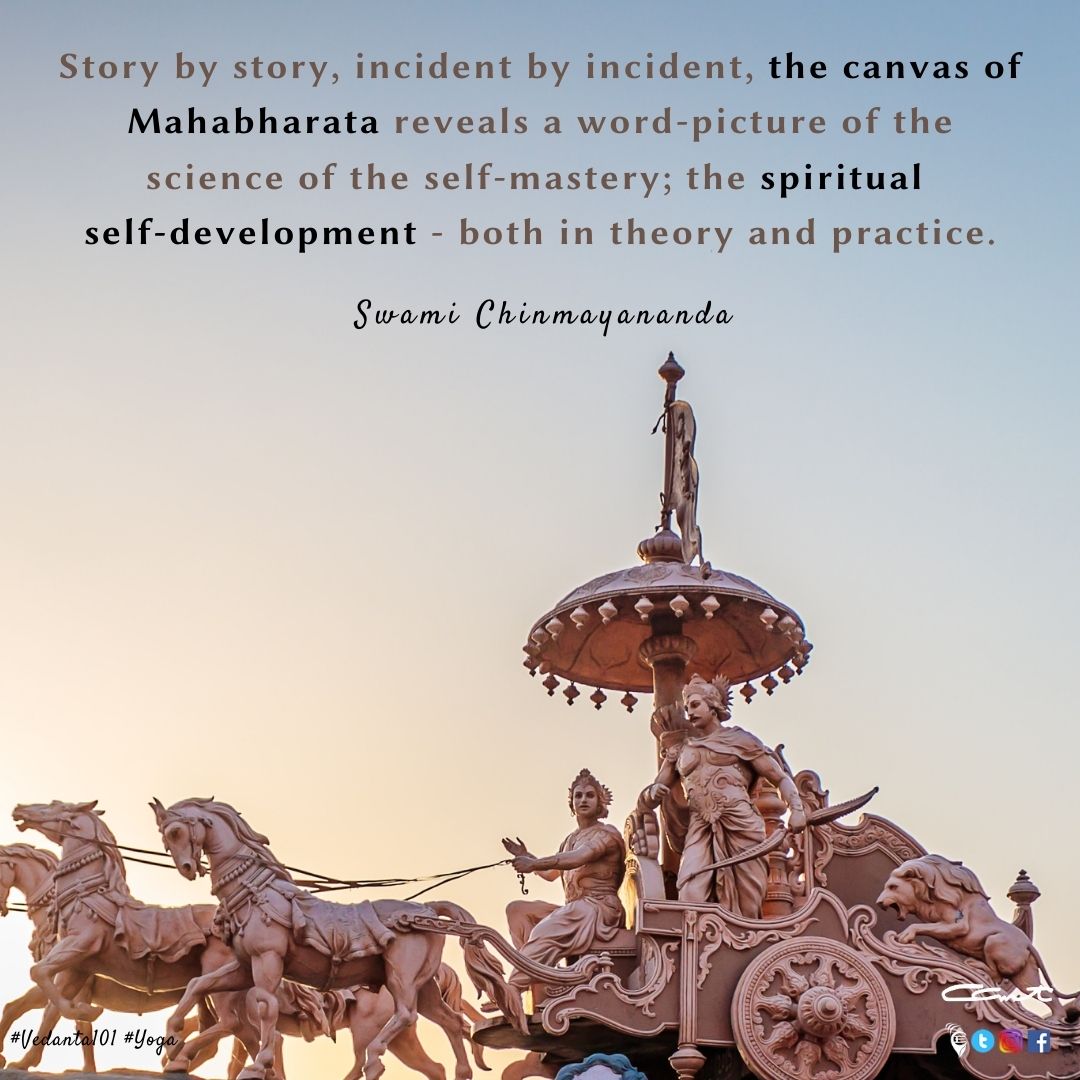The Philosophy of the Bhagavadgita - 10.1. Swami Krishnananda.
------------------------------------------------------------------------------------------------------------------------
Friday,March 26, 2021. 10 : 53. AM.
-----------------------------------------------------------------------------------
--------------------------------------------------------------
Chapter - 10: Forms of Sacrifice and Concentration-1.
--------------------------------------------------------------
There is another important theme expounded in the Fourth Chapter, viz., sacrifice as a practice of Yoga, in which context certain details of the variegated methods of the performance of this sacrifice as Yoga are delineated. The adoration of the gods, the celestials, or the deities of religion is a sacrifice. And any sacrifice is also a Yoga, because sacrifice means a parting of one’s own self in some measure in the direction of the achievement of a larger Self, so that in every form of sacrifice a lower form of self is surrendered or sacrificed to a higher form of Self.
Whenever the mind fixes its attention on something other than itself, which is supposed to be wider in its comprehension than the contemplating mind or the self, that process is to be regarded as a sacrifice. A lower principle has to be sacrificed for the sake of a higher principle. Contemplation on a Deity, as we conceive it, is the aim of religion, wherein the surrender of oneself in such a contemplation is implied. This is one kind of sacrifice, a religious performance, and it is Yoga, because it is the union of the lower with the higher by means of adoration. The surrender of the lower self to the higher Self is regarded as Brahma-yajna, jnana-yajna—sacrifice of knowledge, or sacrifice in knowledge, or through knowledge, for the sake of union with the larger Self which is a manifestation of Brahman, the Absolute.
When the senses are withdrawn and fixed inwardly, a sacrifice is performed, and this is also a part of the practice of Yoga. When the senses are concentrated on objects which are regarded as helpful in the sublimation of desire, a kind of sacrifice is performed for the realisation of a higher good. When the powers of the mind, the intellect and the senses, together, are centred in the Self, or the Consciousness within, a sacrifice is performed, and it is a Yoga. When the vital energy inside moving in the form of the breathing process is regulated through systematised exhalation, inhalation and retention known usually as rechaka, puraka and kumbhaka, a sacrifice is performed. And that is also a way of Yoga.
Any act by which the propulsion of the mind and the senses outwardly is checked for the purpose of the utilisation of the whole of one’s consciousness for contemplation on a ‘being’ which includes one’s own self, and is therefore larger than one’s self, is a great sacrifice. Whenever our joy is shared with another, we perform a sacrifice. And the great joy of everyone is to retain the ego. The maintenance of one’s own ego-sense intact is the greatest of satisfactions, and when we share this satisfaction a little of the ego is diminished in its intensity, thereby we part with a measure of our personality, we share a little bit of our being, the lower self, by which act we expand our consciousness in the direction of that which includes the so-called lower self of ours as well as that on which we are contemplating. When we were discussing the concept of the Deity we had touched upon this theme.
To be continued ....
========================================================================






Comments
Post a Comment